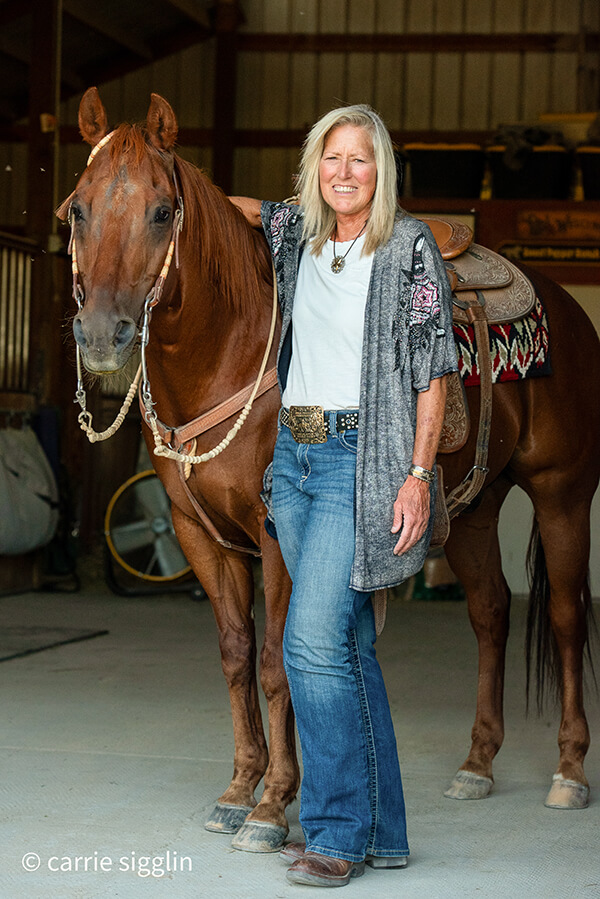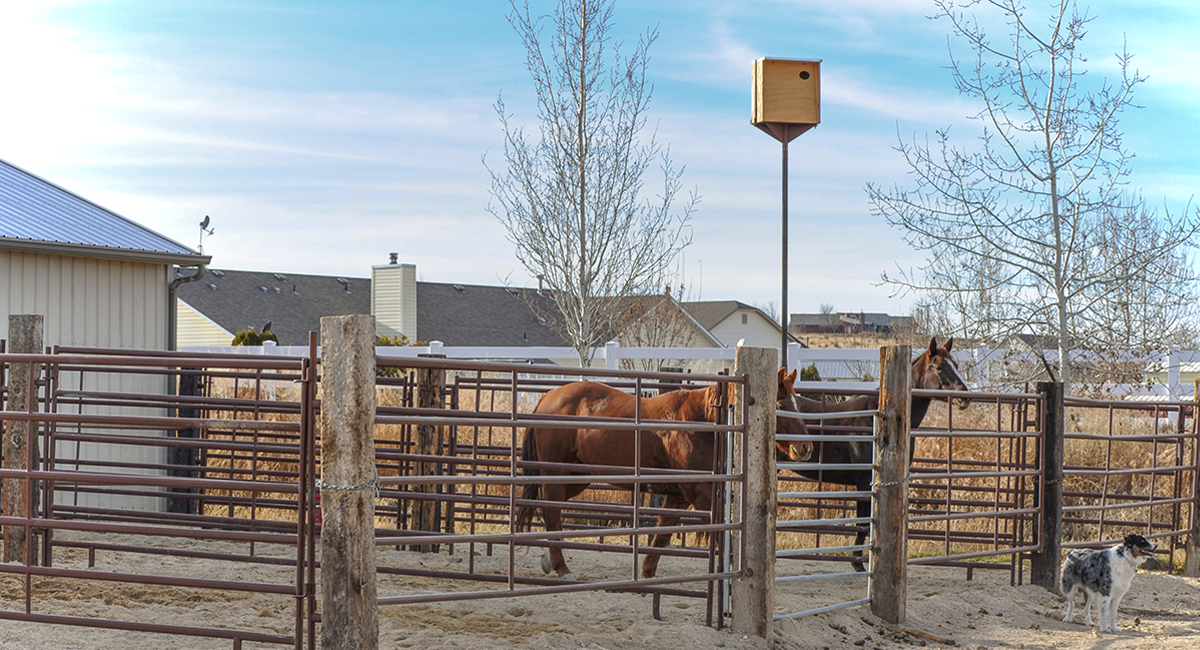Consider Natural Solutions
Fall is a good time to consider rodent control plans as that’s when mice and rats really start showing up in our barns looking for a warm, dry place to hang out for the winter.
Rodents are probably one of the toughest challenges to deal with on horse properties. They are small, stealthy, and primarily active after dark when we aren’t around. According to the Centers for Disease Control and Prevention, mice and rats can directly or indirectly transmit over 20 diseases worldwide, some seriously dangerous to humans. Several, such as leptospirosis and salmonellosis, are contagious to horses as well. Plus, mice and rats can cause hundreds of dollars of damage per year in feed loss and structural damage.
How do we go about reducing the populations of these persistent, sneaky creatures without lethal trapping or using chemicals which are deadly to other animals in our shared environment, including our dogs and cats?
Here are three eco-friendly, nontoxic, low-tech, and low-cost techniques for keeping rodents in check.
Reduce Rodent Habitat
First on the list is to discourage rodents by eliminating their habitat: food, water, and shelter. Keep things picked up and put away in your barn to eliminate hiding and nesting sites. Piles of towels, rags, horse blankets, or old feed bags are examples of things rodents love to shelter in. Keep things put away and neat. Store all feed in aluminum garbage cans with secure lids. Clean up spilled feed or grain and pick up cat and dog food at night. Installing downspouts and creating good drainage around your barn will reduce watering sources for rodents.
Barn Owls for Nocturnal Control
Nature’s mousetrap, the barn owl, is death on wings for rodents. These stealthy creatures of the night fly silently and have excellent low-light vision, sharp beaks, powerful talons, and extraordinary hearing. A family of barn owls can consume approximately 2,000 rodents in just a couple months.
Barn owls are native to every continent in the world except for Antarctica, so no matter where in the world you are, your horse property can benefit from having a barn owl working for you. Barn owls are not aggressive to people, nor will they attack pets or livestock.
Barn owls are secondary cavity dwellers which means they live in a hole somebody else created. This could be a hole in an old tree made by a woodpecker, or the dark rafters inside a quiet barn. Humans can take advantage of this because it means barn owls adapt well to nest boxes which can be purchased or made. Search the internet for nearby sources to purchase one or for plans to build one.
Kestrels for Daytime Control
The American Kestrel is a small but fierce member of the falcon family. Its primary food source is larger insects, such as grasshoppers or crickets, as well as small rodents such as mice, rats, shrews, gophers, and young ground squirrels. Kestrels are found all year in open habitats across North America, including grasslands, pastures, and other agricultural lands, in both urban and rural areas.
American Kestrels, like barn owls, are also secondary cavity nesters. They accept nest boxes quite well and can begin mousing on your property right away.
Be sure to select the nest box that’s specific for the bird you want to attract and follow instructions for where and how to hang them.
Once you install nest boxes you can step back and let nature do the rest. It’s hard to find an easier method of rodent control than these low-cost, nature-based solutions.
Join Alayne Blickle and King Conservation District in Ravensdale, WA for a farm tour on Sunday, October 13 from 1:00 to 3:00 p.m. Learn how the landowners of Far-Away Farm have turned this property from the blackberry patch they purchased to a home for their family, a horse, three goats, and over 50 chickens, even with a neighboring herd of 100 elk! To register for this free event contact King Conservation District.
Check out the Horses for Clean Water website for information on upcoming events, including the HCW Masterclass six-week series which begins Monday, October 21. This online, live series covers mud, manure, pasture, as well as equine enrichment, non-toxic approaches to managing horses, and much more! Visit the Sweet Pepper Ranch website for info on our horse motel or glamping tent.
See this article in the October 2024 Online Digital Edition:
October 2024

Alayne Blickle began in the 1990’s as a pioneer in water conservation and natural resources conservation by creating the entrepreneurial consulting business, Horses for Clean Water, an award-winning internationally acclaimed education program that looks for horse-healthy, nature-based solutions to land management challenges. She continues this work today partnering with agencies, organizations, and horse owners throughout North America and worldwide. She is a regularly contributing writer and photojournalist to several equine publications.
Alayne lives with her horse trainer husband, Matt Livengood, in southwestern Idaho where they raise and train AQHA horses and mustangs on their eco-friendly horse ranch. Contact her through the Horses for Clean Water website or through their ranch website Sweet Pepper Ranch.
For more information contact Alayne at [email protected] or 206-909-0225.









